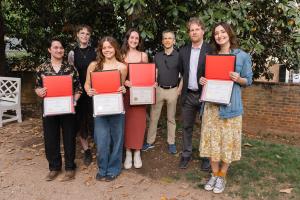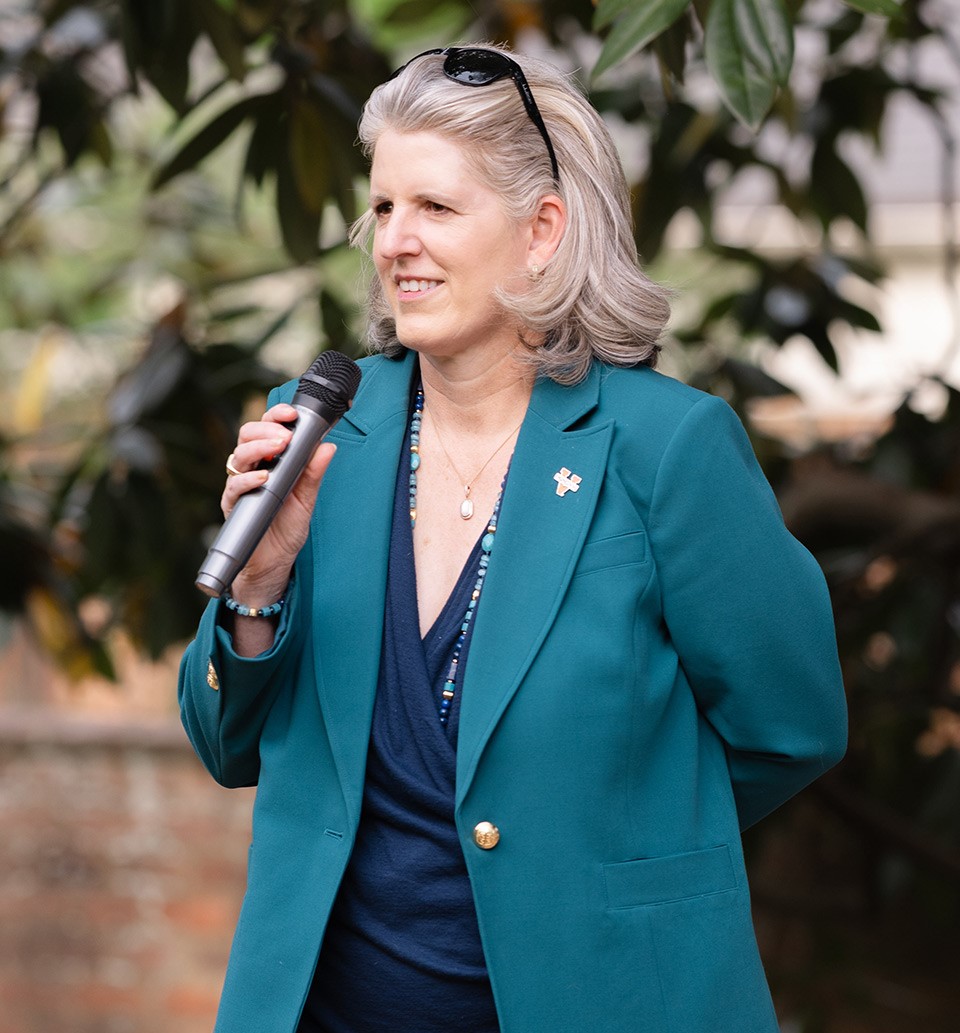

The School of Engineering and Applied Science is proud to announce this year’s Thomas Hughes Award winners for undergraduate research. Thomas Parke Hughes was a 1953 University of Virginia Ph.D. alumnus in European history and pioneer in the history of technology. The award recognizes outstanding thesis research conducted in a Science, Technology and Society course in the Department of Engineering and Society, a requirement for students anticipating graduation across UVA Engineering majors. Dean Jennifer L. West and Rider W. Foley, an associate professor in the Department of Engineering and Society, bestowed the awards at the annual Fourth-Year Garden Party, organized by the Engineering Student Council.
Bella Heintges
Electrical Engineering
Isabella “Bella” Heintges studied two curated social media accounts to analyze how digital infrastructure and feedback loops reinforce body shaming. Using Susan Leigh Star’s theory of infrastructure, Heintges reveals how platform design and user response can perpetuate diet culture.
Ashtin Jannuzzi
Biomedical Engineering
Ashtin Jannuzzi examines how efficiency-driven health care practices contribute to inequitable treatment of patients with disabilities. His research argues that the lack of accessible exam tables reflects deeper systemic bias and calls for a shift from the medical model of disability to a social one.
Carly Nerger
Biomedical Engineering
Carly Nerger developed a method for tracking metal biopsy clip migration in breast tissue models. Her STS paper explores Dr. George Crile Jr.’s move away from radical mastectomies, arguing that his approach better upheld patient autonomy and ethical care.
Claire Novak
Systems Engineering
Claire Novak’s research examines how mobile banking platforms in Northern Tanzania were developed without fully accounting for the needs of all users. Her analysis highlights how design assumptions can limit usability and reduce the overall effectiveness of technology-driven development efforts.
Defne Savas
Aerospace Engineering
Aerospace engineering student Defne Savas analyzes time as a sociotechnical system, shaped by both technology and power. Through case studies like the Y2K bug and bureaucratic wait times, she challenges assumptions of time as linear or neutral.